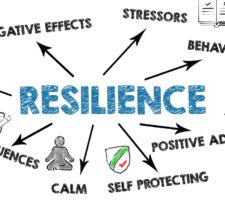The 15 Men’s Health Check Ups You Should Get Done Every Year
Taking care of your health isn’t just about hitting the gym or eating right—it’s also about knowing what’s happening inside your body. Men, in particular, often skip regular check-ups, brushing aside potential warning signs. But the truth is, that annual health tests can catch problems early and help you live a longer, healthier life.
Here’s a straightforward breakdown of the essential men’s health check ups every man should schedule each year, and why they’re important.
The Importance of Annual Men’s Health Check Ups
We’re all busy—careers, family, hobbies. But skipping annual check-ups could mean ignoring underlying issues that might only show symptoms when it’s too late. Early detection is key for conditions like heart disease, diabetes, and cancer. These tests aren’t just about treating problems; they’re about preventing them altogether.
By making regular screenings a part of your routine, you’re prioritizing yourself, which is something we all deserve to do.
Disclaimer: Before we continue it is important that you know that I am not a doctor, and this article is for informational purposes only. For any health-related concerns or decisions, please consult a licensed healthcare professional.
Ok? Let’s get started!
1. The Routine Physical
The annual physical exam is where it all starts. Think of it as a baseline for your overall health. Your doctor will:
Check your blood pressure to spot hypertension early.
Measure your weight and BMI to assess for obesity or related issues.
Listen to your heart and lungs for signs of irregularities.
This is also a time to discuss any changes you’ve noticed—no symptom is too small to mention.
If you find it difficult to do all 15 Men’s health check ups every year, at least get this one done.
2. Blood Pressure Screening
High blood pressure is called the “silent killer” for a reason. It often has no symptoms but can lead to serious complications like strokes and heart attacks if left unchecked.
Healthy Range: Around 120/80 mm Hg.
Why It Matters: If your numbers are higher, your doctor might recommend lifestyle changes, medication, or further testing.
3. Cholesterol Test
Heart disease is still the leading cause of death among men, and high cholesterol is one of its biggest contributors. A lipid panel measures the “bad” LDL cholesterol, the “good” HDL cholesterol, and triglycerides.
When to Test: Men over 35 should have this checked every five years—or sooner if risk factors like obesity or smoking are present.
Goal: Keep LDL low and HDL high.
Checking up on your cholesterol is also a good one to do frequently when it come to men’s health check ups. Because it can help to avoid a long list of age related diseases.
4. Blood Sugar Levels
Diabetes doesn’t just happen overnight; it develops over time, often without obvious symptoms. A fasting blood sugar test or HbA1c test can flag prediabetes or diabetes early.
Why It’s Vital: High blood sugar can damage your nerves, kidneys, and eyes over time if left uncontrolled.
5. Prostate Screening
Prostate health becomes increasingly important as men age. While the idea of a prostate exam might not be pleasant, it’s a straightforward way to check for prostate cancer, which is highly treatable when caught early.
Tests to Consider: Prostate-specific antigen (PSA) blood test or digital rectal exam (DRE).
When to Start: Around age 50, or earlier if you have a family history of prostate cancer.
6. Colorectal Cancer Screening
Colon cancer is a leading cause of cancer-related deaths in men, but it’s also highly preventable with regular screening. A colonoscopy or stool test can detect precancerous polyps before they turn into something more serious.
Recommended Age: Start at 45 unless you have risk factors like a family history, in which case you may need earlier screening.
Frequency: A colonoscopy is typically repeated every 10 years.
7. Testicular Check
Testicular cancer is most common in men aged 15–35, but annual exams can help detect abnormalities early.
Self-Exam: It’s good practice to perform a monthly self-exam, feeling for any lumps or changes in size.
Doctor’s Role: A professional exam during your check-up offers another layer of reassurance.
8. Eye Exam
Your eyesight may not seem like a priority, but it’s more than just vision—an eye exam can also reveal signs of other health conditions like high blood pressure or diabetes.
Frequency: Men with no vision issues should have an eye exam every 2–3 years. Those with glasses or contacts should aim for yearly check-ups.
9. Dental Check-Up
Oral health isn’t just about avoiding cavities. Gum disease has been linked to heart disease and diabetes, making regular dental visits more important than you might think.
Recommendation: Twice-yearly cleanings and exams to prevent gum disease and catch oral cancers early.
10. Skin Cancer Screening
Skin cancer doesn’t discriminate, and men are particularly prone to melanoma. If you spend a lot of time outdoors, annual skin checks by a dermatologist are crucial.
Self-Check: Keep an eye on moles or freckles that change in size, shape, or color.
Professional Exam: A yearly visit ensures no spot goes unnoticed.
11. Bone Density Test (For Men Over 50)
Osteoporosis isn’t just a women’s issue. As men age, bone density can decrease, especially if risk factors like smoking or inactivity are present.
What It Checks: The strength and density of your bones.
When It’s Needed: Typically for men over 50 or younger men with specific risk factors.
12. Testosterone Levels
A drop in testosterone can affect your energy, mood, and muscle mass. If you’ve been feeling unusually tired or notice changes in your libido, it’s worth discussing this test with your doctor.
13. Hearing Test
Hearing tends to decline with age, but the change can be so gradual you don’t notice it until it starts interfering with your life. Annual hearing checks can help catch early signs of hearing loss.
14. Immunizations
Vaccines aren’t just for kids. Men should keep up with immunizations like the flu shot, tetanus booster, and shingles vaccine.
Tip: Check your vaccination records to ensure you’re up to date.
15. Mental Health Check
Mental health is as important as physical health, yet men often hesitate to address it. Whether you’re dealing with stress, anxiety, or depression, a conversation with your doctor or a mental health professional can make a world of difference.
Men’s Health Check Ups – Small Steps, Big Results
Taking control of your health doesn’t require a complete overhaul—it starts with simple, regular check-ups. These tests are not just about finding problems; they’re about staying ahead of them. Early detection saves lives, and a little effort now can mean a lot more time with your loved ones later.
So, go ahead—schedule that men’s health check ups appointment, ask questions, and be proactive about your health. You owe it to yourself.
Sources Regarding Men’s Health Check Ups
- MedlinePlus: Health Screenings for Men Ages 40 to 64
This resource outlines essential health screenings for men in this age group, including blood pressure checks, cholesterol tests, and colorectal cancer screenings. - Mayo Clinic Health System: Men’s Health Checkups and Screenings
This article emphasizes the importance of regular physical exams and mental health discussions for men, recommending annual exams for those over 50 and every three to five years for younger men. - Renown Health: 8 Important Health Screenings for Men
This blog post details crucial health screenings for men, such as blood pressure tests, cholesterol screenings, colonoscopies, diabetes tests, and skin cancer checks. - Illinois Department of Public Health: Screening Information
This page provides information on various health screenings for men, including prostate health, obesity, high cholesterol, high blood pressure, colorectal cancer, diabetes, and depression. - Johns Hopkins Medicine: Men’s Health Screenings
This resource discusses the importance of regular health screenings for men, including blood pressure checks, cholesterol tests, and other preventive measures. - MyHealthfinder: Men—Take Charge of Your Health
This guide encourages men to see a doctor for regular checkups, even if they feel healthy, to detect potential health issues early.



